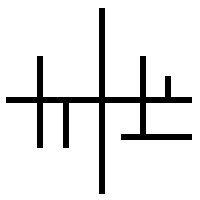6xpipe_
- 1 Post
- 30 Comments

 13·11 months ago
13·11 months agoThat’s only 10 Petabytes per cartridge. The Internet Archive is currently sitting at 212 Petabytes.

 313·1 year ago
313·1 year agoBut, without disruptive new products, sales seem to be stuck in a muted place. And the next swing at big disruption, Vision Pro, starting next year, feels a like a slow build, initially.
Fuck stock market analysts. In one sentence it’s “they don’t innovate.” In the next sentence it’s, “they innovate, but I want them to do it faster.”
How often can you expect a single company to disrupt entire markets? These expectations are not sustainable.

 7·1 year ago
7·1 year agoThe links from that post and top comment point out that that initiative was dropped. It got mired down in bikeshedding from hundreds of opinions and SO eventually just said, “Fuck it.”
The MIT announcement thread was edited with the cancellation announcment:
Update: January 15, 2016
Thank you for your patience and feedback. The changes proposed here have been delayed indefinitely - we’ll be back later to open some more discussions.
The top comment from your link points out the current license:
TL;DR: Source code on SO is still licensed under CC-BY-SA.
And CC BY-SA is the only license listed on the official help page.
- Content contributed before 2011-04-08 (UTC) is distributed under the terms of CC BY-SA 2.5.
- Content contributed from 2011-04-08 up to but not including 2018-05-02 (UTC) is distributed under the terms of CC BY-SA 3.0.
- Content contributed on or after 2018-05-02 (UTC) is distributed under the terms of CC BY-SA 4.0.

 12·1 year ago
12·1 year agoYou’re supposed to do that anyway. Code on SO is licensed as CC BY-SA, which requires attribution.

 19·1 year ago
19·1 year agoYeah, that’s what I want. For the government to tell me who I am or am not allowed to spend money with. I’m sure that wouldn’t have any negative repercussions.

 71·1 year ago
71·1 year agoFirefox has been very good (better than Chrome) for several years. Ever since they released Quantum.

 2·1 year ago
2·1 year agoThere’s nothing special about it. It’s just the extension in a larger format. I’ve tried to use it a few times, but there’s no gain over the extension. And, typically the extension is better because I already have my browser open, so I don’t need to open a new app.

 3·1 year ago
3·1 year agoAbsolutely not. My 65+ year old parents just cut the cord recently because they were paying over $250 for cable. They now pay around $90 for Hulu+Live and get almost everything they had before, with a couple of small exceptions.

 25·1 year ago
25·1 year agoFor those not clear, AppleTalk was created at a time where there was no universal standard in networking. The “standard network” you think of today, a bunch of computers plugged into a router, existed but wasn’t the de-facto setup. There was still experimentation going on.
Apple ported some of the AppleTalk features, such as Network Discovery, into Bonjour which was introduced in 2002. Once that became mature, there was no reason to keep AppleTalk around.

 1·1 year ago
1·1 year agoNot wearing gloves could be a tactile thing. I wear gloves when cleanup would be a real hassle without them (wood finishing, working with epoxies), but I prefer not to when possible because I can’t feel what I’m doing as well.

 2·1 year ago
2·1 year agoThere wasn’t even a maximum on the contract. When I got my first two phones, I agreed to a 2-year cellular contract. If I closed my account or moved providers before that, I had to pay AT&T some amount of money to kill the contract. After those two years were up, I could do whatever I wanted. I was then on a month-to-month payment, like standard cell plans today. They just wanted to make sure to recoup their money over 2 years for subsidizing my cheaper phone upfront.
Now, the subsidization is more like a subscription fee, where there are additional fees on the bill each month toward the phone and the cell phone company encourages you to get a new one once it’s paid off. You’re still paying full price for a phone. Possibly forever.

 29·1 year ago
29·1 year agoHowever, before deleting an article, CNET reportedly maintains a local copy, sends the story to The Internet Archive’s Wayback Machine, and notifies any currently employed authors that might be affected at least 10 days in advance.
People are freaking out so bad about this story. They’re doing the right thing and archiving it before deletion. Settle down.
How many CNET articles from 2004 are you reading that you’re getting this angry about it?

 1·1 year ago
1·1 year agoI have an iPhone 8 and see no reason to update in the near future.

 2·1 year ago
2·1 year agoWhen smartphones first took off, each new one was a large upgrade
And they were subsidized by the cell phone company, so they only cost $200 (In many places in the US, at least).
“What did that code look like two minutes ago?”
- Cmd+A
- Cmd+C
- Cmd+ZZZZZZZZZZZZZZZZZZZZZZ
“Oh, ok.”
- Cmd+Shift+ZZZZZZZZZZZZZZZZZZZZZZ
“Make a strength check.”

 3·1 year ago
3·1 year agoI use Shortcuts to bridge Siri to my Home Assistant setup. Apple doesn’t control my house.
Not exactly. The poultry family includes other fowl/birds, including turkey and duck.


Yep. One roll per day at most. Less than that if you have a number you already like.